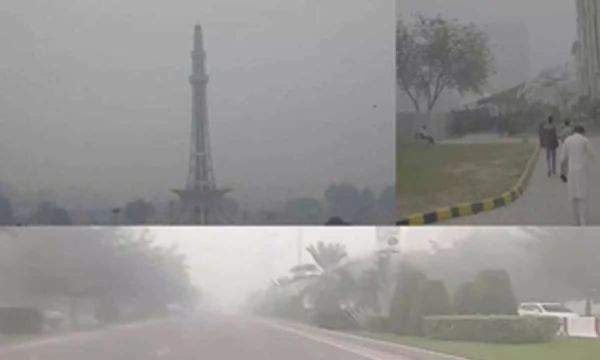
In the last month, around 20 lakh individuals in Pakistan’s Punjab province have sought medical attention for respiratory conditions, according to statistics released by the local health authority in its first-of-its-kind study.

It said that since Lahore and Multan continue to be the most polluted cities in the world, Pakistani inhabitants are experiencing heart problems, strokes, asthma, and respiratory ailments as a result of pollution.
According to the statistics, 12,62,30 instances were recorded from Lahore alone in October, out of a total of 19,34,030 cases reported from the province.
Additionally, it said that in October, more than 5,000 individuals in Punjab province had strokes.
In Lahore, the average air quality score is still far over 1400, while in Multan, it has often surpassed 2000.
With readings of 2188 at Syed Maratib Ali Road, 2155 at Pakistan Engineering Services, and 1704 at Ghazi Road Interchange, the highest air quality index ever recorded in Lahore was 2591. Pakistan’s Express Tribune said on Friday that Lahore’s average air quality index is 1460.
According to local media, Karachi’s AQI dropped precipitously on Friday morning as well.
Shehbaz Sharif, the prime minister of Pakistan, has received a “urgent letter” from the World Wide Fund (WWF) for Nature Pakistan requesting that he proclaim a “national emergency” in order to handle this grave situation.
“The future of our kids is suffocating. They are requesting the freedom to play, breathe, and learn. What must happen before we take action? “The Prime Minister has received a letter from WWF-Pakistan requesting immediate action to end the smog emergency,” WWF Pakistan said on X Friday afternoon.
To assist address the present problem, the letter urges that building activities be immediately stopped, polluting companies be shut down, and high-emission automobiles be taken off the road.
The government must act swiftly, boldly, and decisively to confront the pollution situation, according to WWF-Pakistan Director General Hammad Naqi Khansaid, as additional delay would result in more health issues, financial losses, and environmental damage.